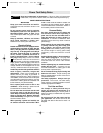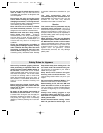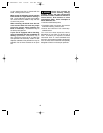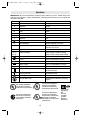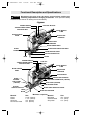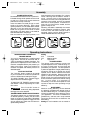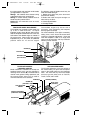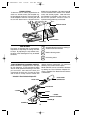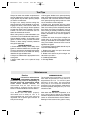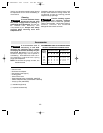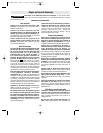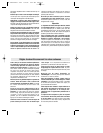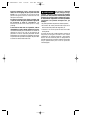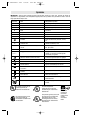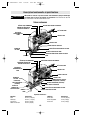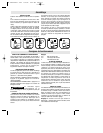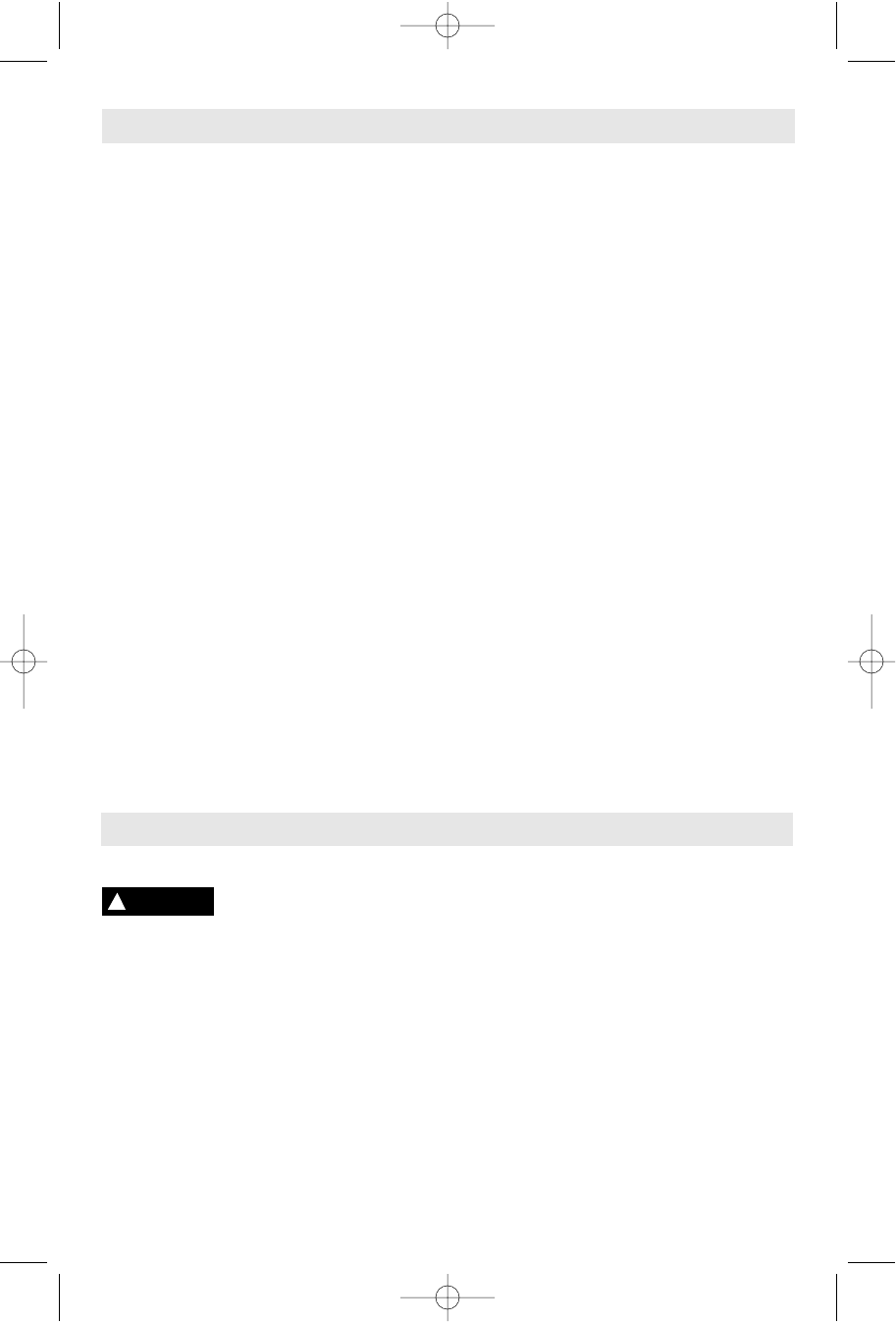
-10-
Service
Preventive maintenance
performed by unauthorized
personnel may result in misplacing of
internal wires and components which
could cause serious hazard. We
recommend that all tool service be
performed by a Bosch Factory Service
Center or Authorized Bosch Service Station.
TOOL LUBRICATION
Your Bosch tool has been properly
lubricated and is ready to use. It is
recommended that tools with gears be
regreased with a special gear lubricant at
every brush change.
CARBON BRUSHES
The brushes and commutator in your tool
have been engineered for many hours of
dependable service. To maintain peak
efficiency of the motor, we recommend
every two to six months the brushes be
examined. Only genuine Bosch replacement
brushes specially designed for your tool
should be used.
BEARINGS
After about 300-400 hours of operation, or at
every second brush change, the bearings
should be replaced at Bosch Factory Service
Center or Authorized Bosch Service Station.
Bearings which become noisy (due to heavy
!
WARNING
Maintenance
Always be certain that smaller workpieces are
securely fastened to a bench or other support.
Larger panels may be held in place by clamps
on a bench or sawhorses.
To begin a cut, clearly mark the cutting line,
and rest the front of the footplate on the work.
Engage the switch, and move the blade into
the work using only enough forward pressure
to keep the blade cutting steadily. DO NOT
FORCE, as this will not make the saw cut
faster; let the blade do the work.
When cutting metal, it is often advisable to use
a lubricant to cool the blade and extend its life.
Choose blades carefully, as the ability of the
jigsaw to follow curves, provides smoother
finishes, or faster cutting is directly related to
the type of blade used.
BLADE SELECTION
• Choose blades carefully, as the ability of the
jigsaw to make the fastest cuts, to follow tight
curves, to achieve the smoothest finish and/or
to maximize the life of the blade are directly
related to the type of blade used.
• Always use a blade that is appropriate for the
cutting task.
• Always make a test cut in a piece of scrap
material.
• Most jigsaw blades have upward-pointing
teeth, which helps to pull the jigsaw against the
workpiece and minimizes vibration. Blades
with upward-pointing teeth produce a clean
cut on the bottom of the workpiece.
• Blades with downward-pointing teeth
(reverse-tooth blade) can be used to produce a
clean cut on the top of the workpiece (that side
that faces the jigsaw's footplate), such as
when cutting an already-installed countertop
from the top. When using reverse-tooth
blades, downward force must be applied to
the jigsaw.
• Blades with teeth that point straight out
(rather than up or down) allow splinter-free
cutting on both sides of the workpiece. When
using such blades, downward force must be
applied to the jigsaw.
• The following types of blades should only be
used with orbital Setting O:
1. Blades with teeth that point downward
(reverse-tooth blades).
2. Blades with teeth that point straight out
rather than up or down.
3. Carbide-tipped blades.
4. Grit-edge blades.
Tool Tips
BM 2610993477 2-04 2/9/04 9:24 AM Page 10



